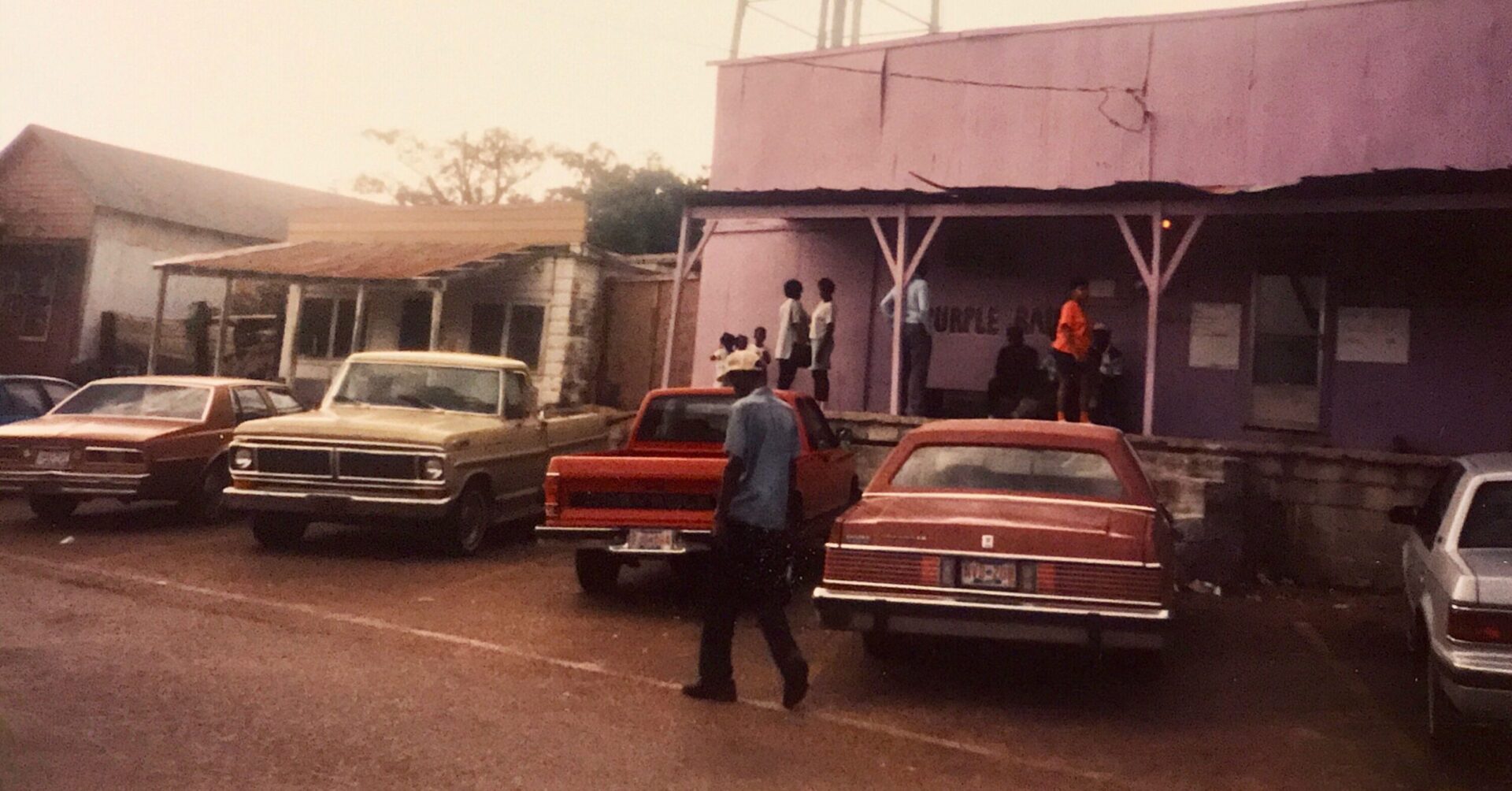




































































Mason, Tennessee, located in Tipton County by geography, but more socially and culturally linked to adjacent Fayette County, is the dead center of what might be considered West Tennessee’s Delta region. As a market town for both whites and Blacks in the surrounding cotton country, Mason became a place of recreation for Blacks on weekends, as most of the other towns were far more restrictive with regards to nightlife. In Mason, town officials turned a blind eye to the numerous juke joints that were euphemistically called “cafes.” With no closing ordinances, Mason cafes could literally run all night long, and attracted Blacks from a hundred-mile radius. People came from as far away as Cairo, Illinois and Blytheville, Arkansas, because in Mason, usually nobody cared what you did as long as you didn’t kill anybody. In the mid-sixties, things became even more energized, because a man named William Taylor shuttered his Chicago nightclub called Club Tay-May and then opened two Club Tay-Mays in West Tennessee, one south of the railroad tracks on Main Street in Mason, and the other one on Keeling Road near the antebellum Oak Hill mansion. These clubs attracted legendary performers like Little Milton, Little Johnnie Taylor and Rufus Thomas.
Unfortunately, as agriculture declined, and as people (particularly Blacks) moved to the cities, Mason fell on hard times. The cafes, largely adapting to a rap music and a younger clientele, became a focal point for violence. Club Tay-May burned and was never rebuilt, and the city passed closing ordinances to require clubs to shut down at 2 AM. Since this made Mason no different than Covington, Dyersburg or any other town in West Tennessee, those who had formerly come to Mason to party stayed at home instead. The downtown buildings where the cafes had been began to collapse and were condemned by the city.
Although Mason has fallen on hard times, there is still something of a unique culture in the community. Two of America’s best restaurants, Bozo’s Bar-B-Que and Gus’s World-Famous Fried Chicken are located in this little town of only about 500 people, and a few juke joints still remain on Front Street near the railroad track. Each fall, the town sponsors a Mason Unity Fall Festival, which sponsors activities for the young people, an opportunity for vendors and food trucks, and live music performances. At the initial festival in 2011, there had been no stage, only a DJ, and a few gospel choirs performed out in the street a cappella. This year, the city had brought out a full stage, and a good blues/soul band was on it when I arrived. The vocalist performing was named Charles King, but the band proved to be from West Memphis, Arkansas and was known as the Infinity Band. Unfortunately, compared to previous years, the crowd was fairly small due to the extremely cold, grey weather we were having. Even so, Saul Whitley was firing up the barbecue grill in front of his cafe The Blue Room, and the young men from the Whip Game Car Club were setting up a tent and cooking food as well. Several people knew me from social media, and thanked me for the historic photos of Mason I had put up online that I had taken back in 1991.
One of the sadder things was that so many of the cafes are gone, most recently The Black Hut having been torn down. A pile of cinderblocks remains where it was. Behind The Green Apple, which seems to be out of business, is an old abandoned hotel. Even the former Mason City Hall and Police Department have been abandoned and condemned. But I got an opportunity to talk to a woman who said that Ocie Broadnax of the Broadnax Brothers Fife and Drum Band was her great grandfather, and that he used to play for horse races at a place called Booster Peete’s on the Tabernacle Road north of Mason. Another older man told me that the Broadnax Brothers would beat the drums on the back of a wagon, and ride all around Fayette County to advertise that they would be having a picnic on the Saturday. He said the picnics used to be held at a place called Buford Evans’. So despite the chilly weather, I enjoyed myself immensely.
I came away from the event with the belief that Mason has an important legacy, and possibly a future. Clarksdale, Mississippi is living proof that blues tourism is a real phenomenon and very lucrative. It simply took leadership there with a vision to make it a reality. Mason has historic landmarks like Old-Trinity-In-The-Fields, historic houses like Point-No-Point and Oak Hill, and world-famous restaurants like Bozo’s and Gus’s. What if the old hotel behind The Green Apple was remodeled, modernized and reopened for business? What if a blues and heritage museum were opened on Front Street? What if the Lower End was declared an entertainment district and allowed to stay open later as Beale Street is in Memphis? What if the historic houses were occasionally open for tours? All it will really take is for someone with the vision to make Mason a destination for tourists looking for authentic culture in an authentic setting. It really doesn’t get any more authentic than Mason.

Mason is my hometown. This brought back so many beautiful memories. Thanks!